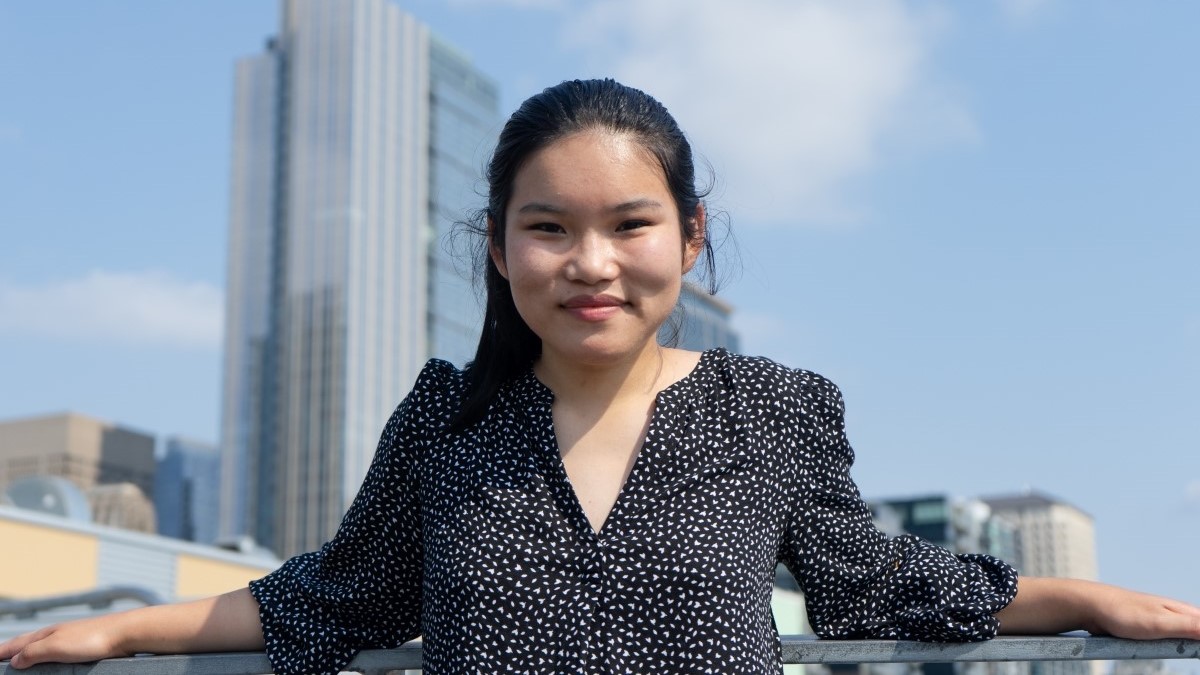Takeaway
My mother had cancer while I was a pre-med student. In caring for her, I learned that it’s important for healthcare professionals to extend empathy not only to patients, but to their loved ones and caregivers as well.

Creative arts in medicine | September 25, 2024 | 2 min read
By Lisa Young, medical student, Johns Hopkins Medicine
Seasons of my mother
Orange and red leaves fall as we step outside,
It is as silent as winter as we drive.
Finally, she asks “will I die,”
I reach over and hold her hand.
I steady her over snow on the tarmac,
Then I pace and wait as they cut and burn.
She’s home but restless in her skin,
As the drugs displace her inside out.
I watch her closely, frightened she may slip away at a moment’s notice,
My brother brings in snow to show her, promise her she’ll see it next year.
We ask whoever’s listening for a singular miracle,
and pray she won’t miss the New Year.
As flowers bloom, I begin to see her do the same.
Soon I hear footsteps padding along the hardwood floor.
By spring, she’ll see the flowers we plant for her outside her window
Pink delights that reflect her strength.
I wrote this poem when I was struggling with my mother’s breast cancer diagnosis. I was in my last year of college, and all I could think about was what would happen to my younger siblings if my mother died. What I remember most from that period is the feeling of helplessness in the face of something completely out of my control. I could only watch as my mother seemed to wither away in front of me.
In this poem, I compared my mother’s journey to the changing of the seasons because sometimes as the seasons change it feels like nothing will return to the way it was. During my mother’s breast cancer journey, there were times when I looked at my mother and I saw a stranger. I could barely remember a time when she wasn’t constantly sick and tired from chemotherapy, where she didn’t cover her head with a wig and a beanie when she left the house.
I understand now what it means to be a caregiver for someone with an illness. I understand now that cancer doesn’t just affect one person but an entire community of family and friends. As I continue on my medical career journey, I will never forget to extend empathy to a patient’s loved ones and caregivers. They need our support in addition to the patient.
This piece expresses the views solely of the author. It does not necessarily represent the views of any organization, including Johns Hopkins Medicine.

